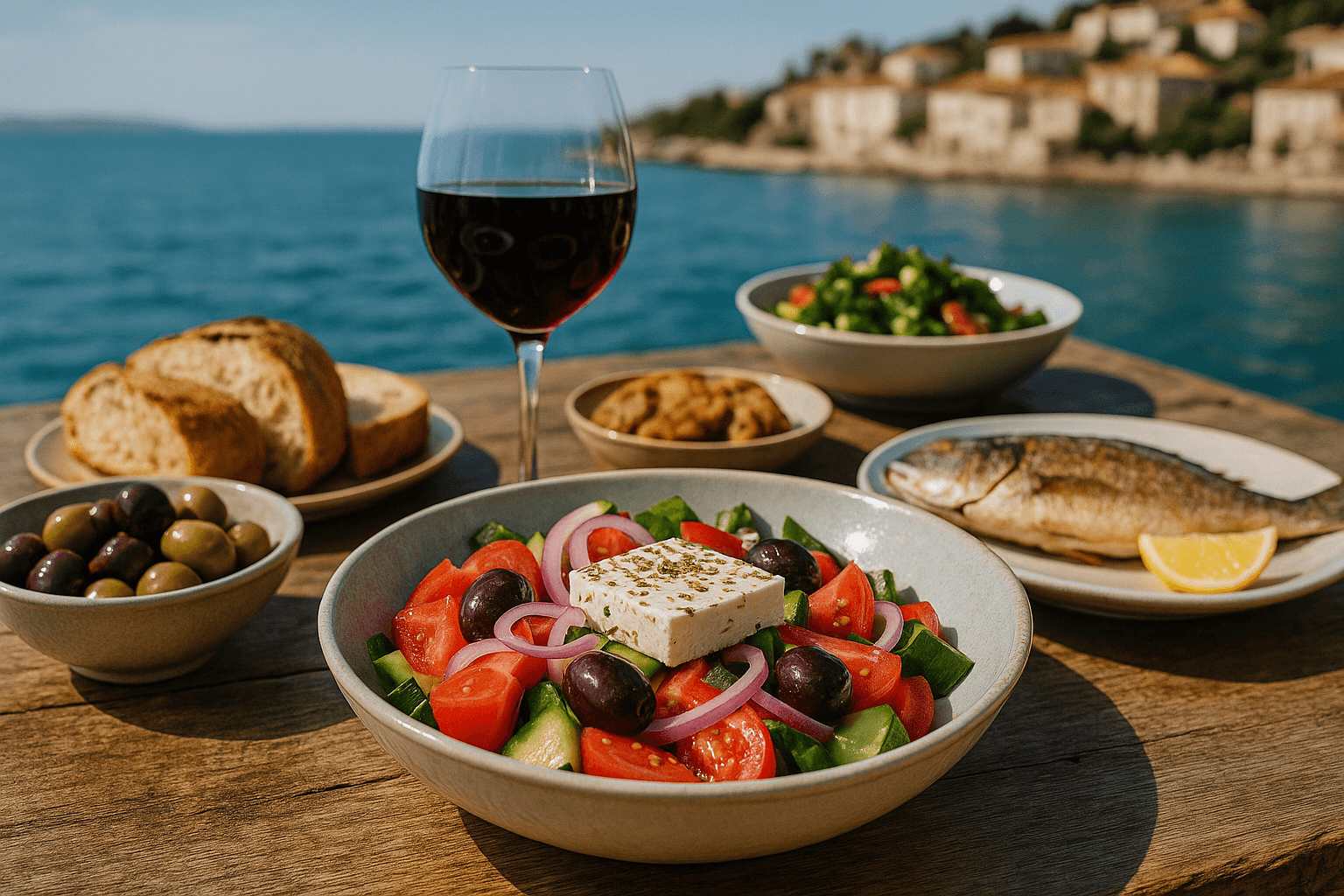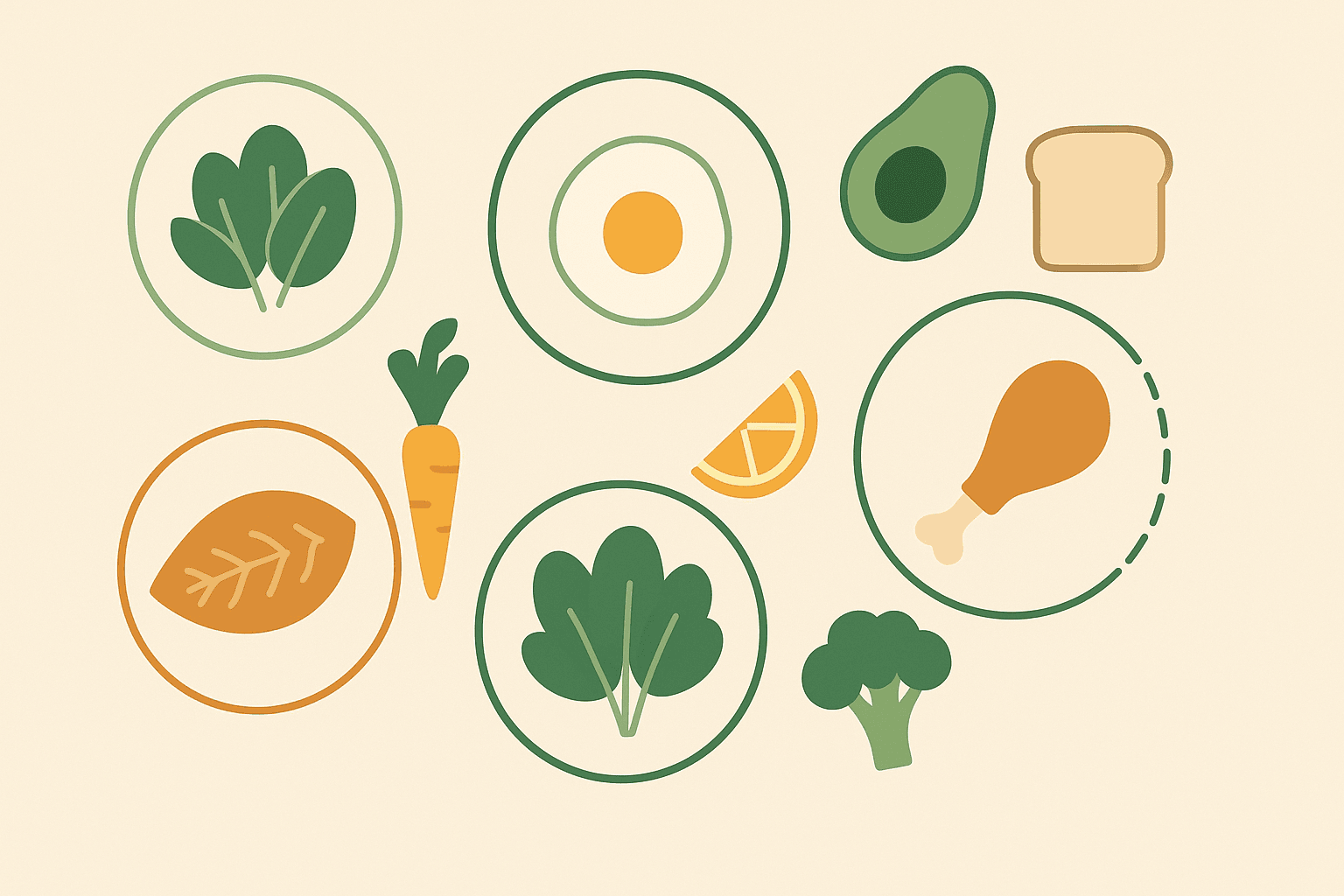The Mediterranean Diet: Science, Simplicity, and Why It Works
Published on June 18, 2025

What Is the Mediterranean Diet?
The Mediterranean diet is a flexible eating pattern inspired by the traditional cuisines of countries like Italy, Greece, and Spain. It’s more than just food — it’s a lifestyle built on whole ingredients, mindful eating, and community.
Key principles include:
Lots of plant foods: fruits, vegetables, legumes, whole grains
Healthy fats: olive oil, nuts, seeds, avocado
Moderate amounts of fish and poultry
Minimal red or processed meats
Low in added sugars and refined carbs
Wine in moderation (optional)
Herbs and spices instead of salt
Water as the main beverage
Daily physical activity and social meals
It’s not restrictive. It’s adaptable to any culture and preferences — just eat fresh, real food and eat with intention.
The Science Behind Why It Works
Unlike restrictive fads, the Mediterranean diet has long-term, research-backed benefits:
Heart Health: Lowers LDL cholesterol and blood pressure. The PREDIMED trial showed significant heart disease risk reduction.
Brain Function: High in omega-3s and antioxidants, it supports memory and may reduce Alzheimer’s risk.
Type 2 Diabetes: High fiber and healthy fats stabilize blood sugar and improve insulin sensitivity.
Weight Loss: Promotes satiety, reduces processed food intake, and leads to sustainable weight loss.
Longevity: Mediterranean populations enjoy lower chronic disease rates and longer, healthier lives.
The Role of Olive Oil
Extra virgin olive oil is a cornerstone of this diet — rich in anti-inflammatory monounsaturated fats and antioxidants like oleocanthal.
It has been shown to:
Reduce inflammation (CRP levels)
Improve cholesterol panels
Protect cells from oxidative stress
Support healthy blood vessels
Pro tip: Choose cold-pressed, high-quality olive oil for maximum benefit.
Other Mediterranean Staples
Beans and legumes: Chickpeas, lentils, black beans — packed with protein, fiber, and slow-digesting carbs.
Whole grains: Barley, farro, bulgur, oats — rich in fiber and phytonutrients.
Fish and seafood: Salmon, sardines, mackerel — high in omega-3s for heart and brain health.
Fermented dairy: Yogurt and cheese (unsweetened) provide calcium and probiotics.
Red wine (optional): One glass with meals may offer heart and brain benefits via resveratrol.
Why It’s So Easy to Follow
You’re not micromanaging calories or carbs. You eat nourishing, flavorful dishes until satisfied, not stuffed. No guilt — just joyful, communal eating.
It adapts to your life:
At home or dining out
Flexible with ingredients
No exotic or expensive products required
Fits any culture, any location
Common Misconceptions
“It’s too high in fat.”
→ The fats are healthy and support heart and brain health.
“It’s expensive.”
→ Beans, grains, vegetables, and canned fish are affordable and accessible.
“You have to live in the Mediterranean.”
→ The principles work anywhere — it’s about food choices, not geography.
Simple Ways to Transition
Cook with olive oil instead of butter
Add a salad or veggie to every meal
Choose whole grains over refined ones
Eat fish twice a week
Snack on nuts or fresh fruit
Flavor with herbs instead of salt
Eat without distractions
Take walks after meals
Avoid ultra-processed foods at home
Share meals with others when possible
The Bottom Line
The Mediterranean diet is simple, delicious, and backed by science. It focuses on real food, eaten mindfully, and shared with others. No perfection required — just intention and care.
It’s not just about living longer — it’s about living better. Small changes like swapping butter for olive oil or eating fruit for dessert can transform your health and quality of life.
In a world full of complex and contradictory diets, this one returns us to what truly matters: fresh food, made with love, enjoyed with others.








